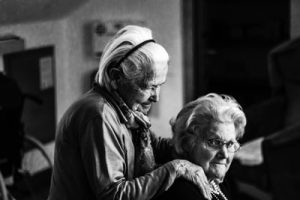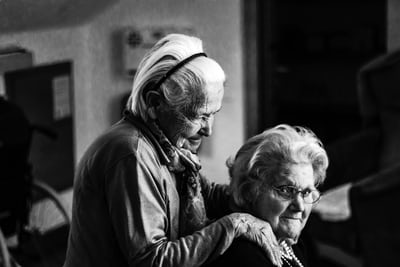
Children and seniors are the most at risk demographics to be victims of abuse. The prevalence for elder abuse in Canada is 7.5%, meaning 695,248 older Canadians are victims of abuse every year which is absolutely unacceptable.
Abuse of seniors is defined by the World Health Organization as “a single or repeated act, or lack of appropriate action, occurring within any relationship where there is an expectation of trust, which causes harm or distress to an older person”. Although the abuse can take many forms, be it neglect, financial, physical, sexual or mental and emotional abuse. Seniors face numerous difficulties to begin with, as the later stages of life are normally filled with health problems and lifestyle changes making it incredibly difficult to access social services. Seniors account for 17% of Canada’s population and we must do our best to ensure they are taken care of, it’s our civil duty. It is estimated that only 20% incidences are reported, meaning many of our elder population are being taken advantage of and treated unfairly and the abusers go unpunished. We will not stand for this. These people have worked their entire lives raising and mentoring younger generations and we have to protect them.
The first step to combat elder abuse is to realize and accept it is happening, be mindful and observant when visiting older folks and keep your eye out for the signs.
Some warning signs are:
- Injuries, they can be small like bruises or cuts but also as severe as broken bones.
- Malnourishment or weight loss.
- Poor Hygiene.
- Unexplained transactions or missing funds.
- Anxiety, depression and confusion.
- Withdrawing from family or friends.
Simple neglect is the hardest form of abuse to detect because it’s not particularly apparent and can be masked as merely an aging person who cannot take care of themselves. Signs of neglect can include:
- Bedsores or pressure ulcers.
- Being left in bed for an extended period of time without supervision or care.
- Lack of basic hygiene, adequate food or hydration.
- Missing medical aids such as walkers, dentures, eyeglasses, medications and hearing aids.
- Unclean or unsafe living conditions, soiled bedding or bug infestations.
- Negative behavioural changes.
Always be mindful and check up regularly on the elder people in your life, especially ones who don’t have children to help them. Abuse can happen anywhere, to anyone at any time and it’s our responsibility as humans to look after one another.
Here are a few resources if you or a loved one are facing abuse:
Nursing Home Abuse Centre: 1-877-959-9206
Seniors Abuse Support Line: 1-888-896-7183
Protection for Persons in Care Office: 1-866-440-6366
World Elder Abuse Awareness Day is June 15th every year, it’s an opportunity to get involved and raise awareness. Let’s all do our part in preventing the mistreatment of others!


